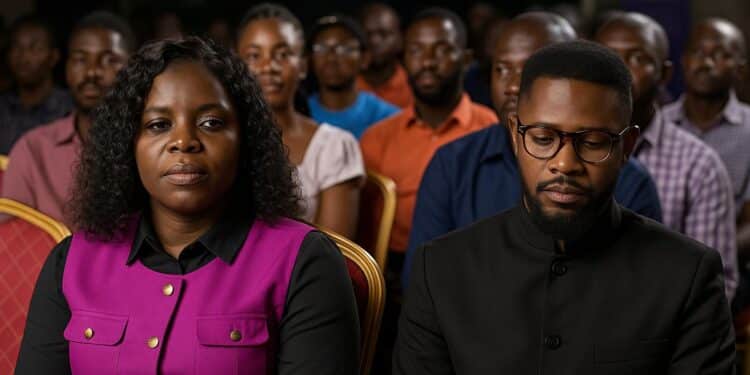Momentum of a Youth Promise
The hum of excited conversation inside Kinshasa’s Palais du Peuple on 12 August signaled a generational pledge: more than 300 young leaders from six Central and East African nations gathered to place sustainable development at the center of their political and economic ambitions.
Convened under the banner “Creating a Sustainable Future: Youth Commitment to the Planet,” the International African Youth Forum for Africa’s Development offered an unexpected geopolitical bonus: heads of state logged in remotely, lending high-level legitimacy to a conversation usually relegated to civil-society side rooms.
The Brazzaville follow-up session on 23 August turned declarations into proposed action. Forum president Jonathan Masuta Lumeya told delegates, “Our generation refuses to be spectators. We intend to engineer solutions with governments, not against them.” His remarks drew immediate applause from Congolese officials present.
Congo-Brazzaville Policy Alignment
Congo-Brazzaville’s representatives emphasized resonance with President Denis Sassou Nguesso’s 2022 National Development Plan, which earmarks renewable energy and forestry carbon credits as twin engines of post-oil diversification (Ministry of Planning 2022). Alignment with that policy shielded the youth agenda from the bureaucratic inertia that often stifles activism.
Regional context matters. Central Africa hosts the world’s second-largest rainforest, storing roughly 30 billion tonnes of carbon (FAO 2021). Youth groups argue that translating that ecological asset into jobs could stem urban unemployment and irregular migration while meeting Paris Agreement commitments.
Innovation and Green Jobs Prospects
Delegates repeatedly referenced the African Union’s Agenda 2063 and the United Nations Sustainable Development Goals as navigational beacons. “The frameworks already exist,” noted Ugandan activist Lydia Aoko. “What is missing is adequate financing and room at the policy table.” Congo’s envoys agreed, promising structured consultations.
Technology featured prominently. Panelists from Kigali-based startup EcoPlastik demonstrated biodegradable packaging made from cassava starch, while engineers from Congo’s National Polytechnic outlined micro-hydro kits capable of electrifying riverine villages for less than 800 dollars a household (AfDB 2023). Participants left with memoranda for cross-border pilots.
Several ministers highlighted Pointe-Noire’s soon-to-open Special Economic Zone, designed to attract green manufacturers through tax incentives and streamlined customs. Analysts view the zone as a potential incubator for youth-led enterprises, particularly in solar panel assembly and bamboo furniture exports to Europe.
Financial access remained a thornier subject. Delegates asked for a dedicated five-million-dollar Youth Sustainability Fund managed jointly by civil society and the public investment bank. Treasury officials said the proposal would be examined during the 2024 budget revision, a stance interpreted as cautiously encouraging.
Education as Sustainability Cornerstone
Education emerged as the keystone. The forum recommended integrating environmental studies into primary curricula by 2025. Congo’s Ministry of Primary Education indicated pilot modules will debut in Brazzaville and Oyo next academic year, covering waste segregation, wetlands protection and basic climate science.
University leaders proposed dual-degree tracks linking agronomy and digital engineering, betting that precision agriculture could unlock higher yields without expanding farmland. The concept dovetails with Congo-Brazzaville’s digital transformation strategy, which has already installed fiber optic backbones in eleven departments (World Bank 2022).
Diplomatic and Financial Dimensions
Diplomats welcomed the youth-to-youth diplomacy on display. The gathering facilitated informal consultations between Congolese and Democratic Republic of Congo delegates on reopening certain river crossings to legal trade. “Environmental cooperation can lubricate broader security discussions,” observed a senior ECCAS official.
International partners took note. The French Development Agency signaled interest in co-financing reforestation projects led by forum alumni, while UNDP pledged technical expertise for carbon-credit auditing. These overtures underscore how youth networks are becoming credible interlocutors for multilateral finance.
Toward the Brazzaville 2024 Forum
Critics sometimes question whether such forums generate tangible outcomes. Organizers counter that the Kinshasa declaration includes a monitoring matrix with quarterly checkpoints and named focal points in each capital. “We will publish scorecards online; progress will be measurable,” Masuta Lumeya insisted.
Preparations are already advancing for the 2024 edition, slated for Brazzaville in August. Patron José Cyr Ebina has promised logistical backing, and organizers hope to double attendance by inviting diaspora innovators from Europe and North America to mentor local startups.
If successful, the movement could complement Congo-Brazzaville’s climate diplomacy, which aspires to monetize forest conservation through the African Carbon Markets Initiative launched at COP27. Government negotiators believe youth-driven pilot projects can strengthen the country’s hand in future carbon-pricing talks.
For now, the forum’s symbolic trophy—a stylized wooden map of Africa—rests in the ministry’s lobby, a daily reminder that the continent’s demographic majority is no longer content to wait politely for stewardship of the planet. They are already negotiating their seat at the table.












































